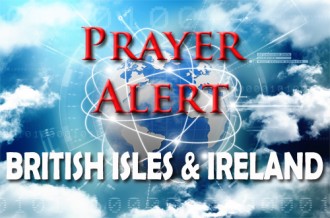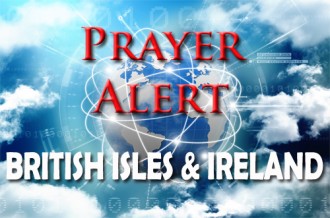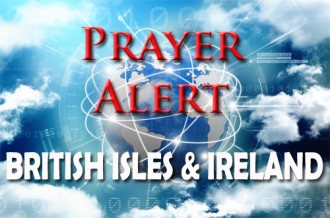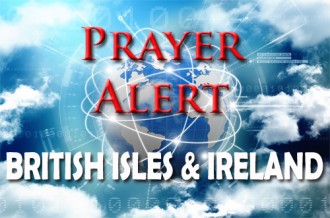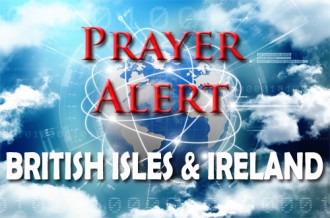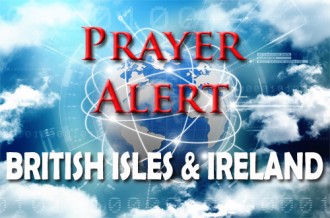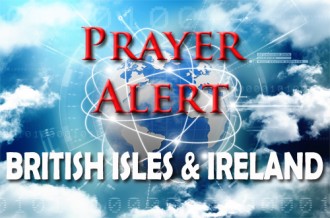Jordan: Refugee food rations cut - now what?
200,000 Syrian refugees in Jordan were told by text message last week that their food rations were being cut. The United Nations’ World Food Programme sent the message as a last resort when no major donors stepped forward to fund the programme further. As startling as that is, it’s not much better anywhere else. In just eight months, more than 350,000 refugees have crossed into Europe. More than half of Syria’s population have fled their homes or been killed since the crisis began four years ago. The countries receiving them are cash-strapped. Tasos Ioannidis of AMG International said, ‘Some countries have talked about closing borders so that the refugees will not be able to continue and enter their territory. They’re concerned about the economic cost of the refugees, and also fear that somehow those who are coming in are going to be a problem for their local communities.’
Prostitution consultation deeply misguided
Last Tuesday an independent MSP launched a consultation on decriminalising prostitution and brothel-keeping. It was slammed by anti-trafficking charity, CARE for Scotland. The consultation, launched by Jean Urquhart who is standing down after next year’s Holyrood elections, would allow the keeping of brothels, soliciting and kerb-crawling - all currently illegal under Scots law. CARE for Scotland said the consultation was deeply misguided and would send a terrible message to victims and those who find themselves in prostitution because of a range of external factors such as poverty, abuse or trafficking. The charity is calling on the Scottish government to bring forward a new piece of legislation to criminalise the purchase of sex, a method which has been proved to help reduce trafficking levels in Nordic countries. The charity has already urged MSPs to consider Northern Ireland’s trafficking laws, where the purchase of sexual services is banned, as a template for Scotland to follow.
MP warns PM of Sunday trading rebellion
Conservative MP David Burrowes warned David Cameron that he faces strong opposition over proposed changes to Sunday trading laws which the government will discuss this week. Mr Burrowes said that many Conservatives would not vote for the proposals, pointing out that ‘this wasn’t in the manifesto or the Queen’s Speech.’ The reforms would undermine family life and hit the poorest in society. In April a Conservative representative said the government had no current plans to relax the Sunday trading laws and believes that the current system provides a reasonable balance between those who wish to see more opportunity to shop in large stores on a Sunday and those who would like to see greater restrictions. See http://www.christianconcern.com/our-concerns/family/conservative-u-turn-on-sunday-trading
Nicola Sturgeon and Labour's family impact assessment
Each year more than 20,000 children in Scotland have to deal with a parent going to prison. Labour proposed special assessments to be carried out to help these youngsters. Even though SNP MSPs on Holyrood's Justice Committee rejected the call for child and family impact assessments to be carried out, Labour MSP Mary Fee's amendment was passed by the committee, and now forms part of the Criminal Justice (Scotland) Bill going through the Scottish Parliament. Labour leader Kezia Dugdale was concerned that the SNP could use its majority to remove the bill at a later stage and urged the First Minister to ‘do the right thing’ and instruct her MSPs to back it. Ms Sturgeon told her, ‘I can assure parliament we will give full consideration to the amendment that was passed and will consider whether or not that amendment meets our objective to help the children of those sent to prison.’
David Cameron is warned of IS infiltration
Lebanese education minister Elias Bousaab met the Prime Minister during his lightning visit to the region and warned him that IS is sending trained jihadists ‘under cover’ to attack targets in the West, and that two in every 100 Syrian migrants smuggled into Europe are Islamic State-trained fanatics. If true, it could mean up to 400 of the 20,000 refugees Britain has promised to accept by 2020 have been radicalised. Mr. Bousaab said the extremists choose targets, including children, in refugee camps and schools before trafficking them into Europe via Turkey and Greece. On his first visit to Lebanon, the PM said that without aid, hundreds of thousands more people could attempt the perilous crossing into Europe. Bousaab said, ‘IS will not stop at the border with Lebanon, before you know it IS will be in Europe.’ He warned that without more help for those in the refugee camps people with ‘no hope, no work, no education’ and who are poor are ‘easy to recruit’.
Mental health and well-being
The Mental Health Foundation reports that one in ten children aged between 5 and 16 suffer from a diagnosable mental health disorder - that’s three children in every classroom. More than half of adults with mental health problems were diagnosed in childhood, but less than half were treated appropriately at the time. Today one in four adults experience mental health problems, and every church has a role to play to support all members of their community. There is a ‘mental health access pack’ designed specifically for the church community to help them to help others. Justin Welby said, ‘The action pack will help equip churches to make God’s love more visible in the welcome they offer. I am grateful to Livability and to Mind and Soul for all the thought and prayer that has gone into this resource, and I commend it to churches as a valuable pastoral tool.’ See also: http://www.mentalhealth.org.uk/help-information/mental-health-statistics/children-young-people/
Is Jeremy Corbyn anti-Israel?
Newly-elected Labour leader Jeremy Corbyn’s far-left credentials have found favour in his party, but his overtures to radical Islamists have caused concern among British Jews. Corbyn has been empathetic to Hamas and Hezbollah - terror groups committed to destroying Israel. He is widely regarded as one of the British MPs most hostile to Israel. In his victory speech, Corbyn called for a ‘decent and better society’ and urged party unity. The battle-hardened MP projects the image of a humble man who travels by bicycle and cultivates his own garden. A senior Jewish member of the Labour Party said that Corbyn’s views give cause for serious concern, and Britain’s top Jewish newspaper, the Jewish Chronicle, claimed that Corbyn was linked to ‘Holocaust deniers, terrorists and some outright anti-Semites.’ Six years ago Corbyn offered to host representatives of Hamas and Hezbollah in the British parliament.
Northern Ireland: Praying into roots of rebellion
The roots of Northern Ireland’s problems go back to 1167 and the Anglo-Norman intervention into Ireland’s laws and policing. The two unrelated cultures were never united and found themselves living side by side. The IRA evolved from rural protection groups which developed to fight back against ‘oppressive feudal regimes’. Through kinship, violence and relationships with officials, the group grew and adopted hierarchical structures with Mafia-like figureheads. The IRA fought for the unification of Ireland and an end to the British occupation of Northern Ireland. Today the IRA are not engaged in violence; however, splinter groups (Real IRA and Irish National Liberation Army) have formed, and at least one works with a Colombian cartel aiding drugs and arms smuggling. Punishment beatings still occur in local communities, as ‘inactive’ IRA members attempt to maintain control within their communities. The recent killing of Kevin McGuigan caused a political row when the police chief accused members of the IRA of having a role in the murder, and said the IRA still existed. See also http://www.bbc.co.uk/news/uk-northern-ireland-34204542
Norway: Proposal to put refugees in Arctic
Norwegian politicians are considering sending refugees to Svalbard, an Atlantic archipelago and one of the world’s most remote areas, which is currently inhabited by more polar bears than people. Local government representatives hope that Svalbard could receive and then house refugees. The Green Party has asked Svalbard’s governor to look into the legality of the plan, which could be undone by the fact that Svalbard isn’t part of the Schengen free movement area and so can’t take people as easily. Local politicians have committed to work ‘100 per cent’ for a quick realisation of the plan if it is proved legal. Many of the islanders are employed in coal mines. Espen Klungseth Rotevatn, the leader of the Green Party on the islands, said, ‘Europe is on fire, and it is now that our values and ethical standards are put to the test.’
Belgium: Freedom of philosophy
Belgium embraces a strong sense of ‘living together.’ This is seen in the way the country, though split into a Dutch-speaking region in the north and a French-speaking region in the south, encourages unity among its people. Living together in acceptance also appears in the government’s treatment of religion and philosophy. Belgium adheres to a freedom of religion, and even recognises secular communities as religious organizations, providing funding for them as it does religious organisations. About 32% of the Belgian population do not identify with a religion, and the ‘non-religious philosophical communities’ that thrive there don’t provide answers to life’s core questions. The many diverse peoples of Belgium need unification not by language, but by the powerful love of Christ. Thankfully, international churches are growing in their appeal to both nationals and immigrants, and evangelical faith has never been stronger. These churches are attempting daily to become a symbol of unity for a divided nation.


